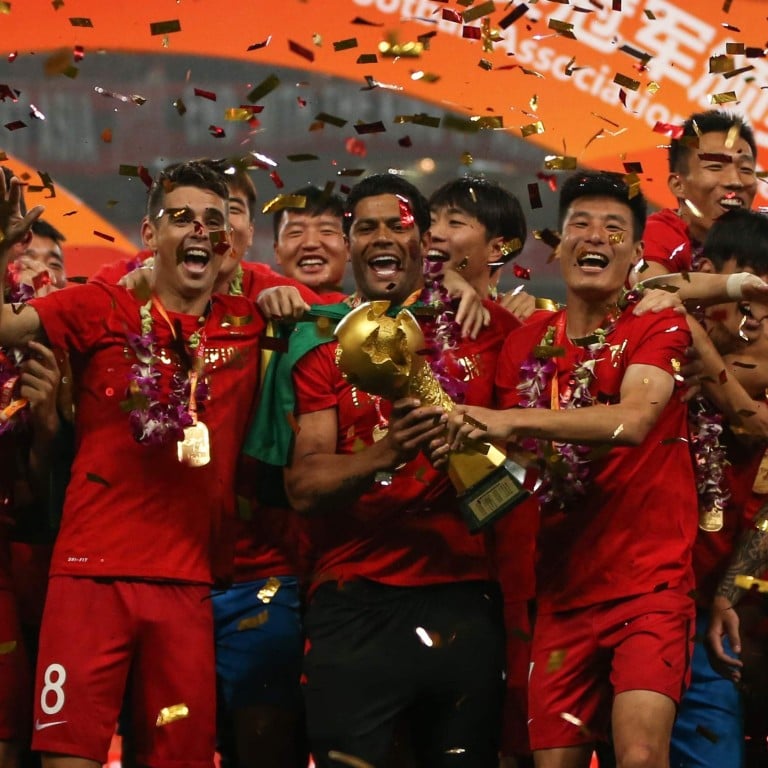
Fan Bingbing tax troubles influence new Chinese Super League rules to crack down on club spending
- Clubs must dramatically reduce spending and losses or face transfer bans
- Tax evading yin-yang contracts banned and salary caps introduced for domestic players
The Chinese Football Association have announced their new rules ahead of the 2019 season at the league meeting in Shanghai on Thursday.
As expected, they have introduced measures to curb spending among domestic clubs, notably those in the Chinese Super League (CSL).
The spending cap for top flight teams is 1.2 billion yuan (US$174 million) for 2019, reducing to 1.1 billion yuan in 2020 and 900 million yuan (US$130 million) in 2021.
There are also limits on the ratio of salary-to-spending for CSL clubs – that is 65 per cent for 2019, 60 per cent for 2020 and 55 per cent for 2021.
Clubs are expected to meet this in part thanks to the player salary cap that has been introduced.
The salary cap only applies to domestic players, who are now limited to annual wages of no more than 10 million yuan (US$1.4 million) excluding bonuses.
Players who are called up to the national team for the Asian Cup and 2022 Fifa World Cup are eligible to earn up to 20 per cent to 12 million yuan per year (US$1.7 million).
There are also caps on player bonuses.
Caps on capital injection for CSL clubs have also been introduced. That limit is 650 million yuan for 2019, which will drop to 560 million in 2020, and then to 300 million yuan (US$43.4 million) in 2021.
Similarly, losses are to be no more than 320 million yuan (US$46.3 million) for 2019, 290 million yuan for 2020 and 270 million for 2021.
So-called “yin-yang contracts”, where two contracts are held with one reflecting a smaller payment passed to the authorities and another representing the money actually paid, have also been banned.
The Chinese Basketball Association has cracked down on these of late, with Qingdao being punished this week with a 150,000 yuan fine.
The club were also forced to pay 5 million yuan in wages to player De Lehei, who has been banned for the season.

The issue came to global attention after the recent tax travails of actress Fan Bingbing.
Players and coaches face bans of between one and three years if the CFA uncovers any tax avoidance schemes, while their clubs can be booted out from their league or deducted points.
Clubs exceeding any of the other new spending limits will be punished with transfer bans and quotas on both domestic and foreign players.
Good news for clubs is that the policy on foreigners remains the same as last year – they can register four overseas players but only play three in any one game.
Foreigners are unaffected by the new salary caps.
In other new rules, players have to have their names printed on the back of their shirts in pinyin next season and CSL teams will all soon be expected to have a women’s team.

